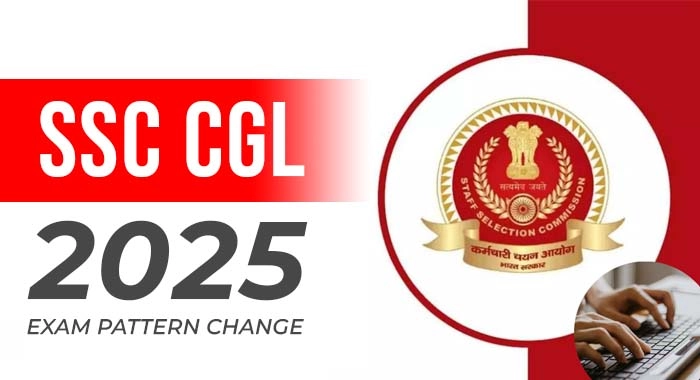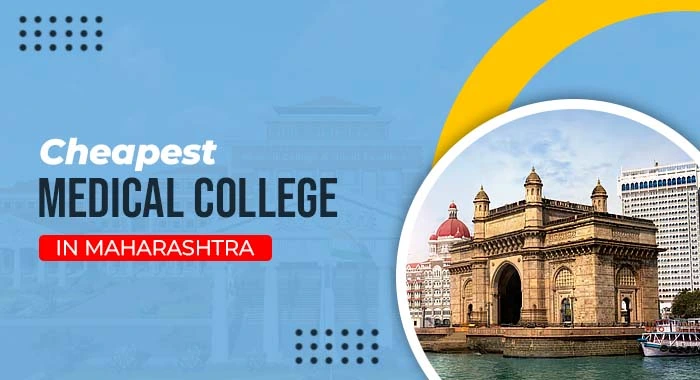The path of education is so multi-branched that often after passing 10th or 12th. Students and their parents are completely confused about what to do next: do a diploma or a degree? One of the most common questions asked is: what is the difference between diploma and degree, which one leads to faster employment, higher salary, or better alignment with long-term career goals? All these questions are related to studies as well as career. Every student wants his time to be safe, money to be invested, and then his career to move forward.
Table of Contents
In this blog, we’ll explain the key differences to help you decide what’s best for you.
Diploma Vs Degree: Key Differences
When comparing the difference between diploma and degree, it’s essential to start with definitions.
Diploma – A Brief But Powerful Program
A diploma is a short, skill-based course that typically lasts from 6 months to 3 years. It focuses specifically on a technical or commercial subject such as polytechnic, web design, hotel management, computer applications, etc. Its main advantages are:
- Industry-focused training: More practical knowledge than theory.
- Immediate employment opportunities: As soon as you finish the course, you are already trained by the industry.
- Part-time and evening schedule available: Beneficial for skill-based learners.
Degree – In-depth Knowledge
A degree is an academically recognized program, which is usually completed in 3 to 5 years. It includes both theory and practical aspects of the subject and is awarded by a university like B.Tech, B.Sc., B.A., B.Com, MBA, BE etc. Its main advantages are:
- Balance of theory and practicality.
- Opens avenues for higher education: like M.Tech, MBA, Ph.D etc.
- Recognition for government and MNC jobs: Eligibility for competitive exams and technical posts.
One core difference between diploma and degree lies in the depth of knowledge and long-term career scope.
Difference Between Diploma Vs Degree
|
Feature |
Degree |
Diploma |
|
Definition |
Academic qualification awarded by universities or colleges after completing a course of study |
Certificate granted by educational institutions after completing a short-term or skill-based course |
|
Duration |
Typically 3–4 years (undergraduate); 1–2 years (postgraduate) |
Usually 6 months to 2 years |
|
Focus |
In-depth theoretical and academic knowledge |
Practical and skill-oriented training |
|
Level of Study |
Higher education (Bachelor’s, Master’s, etc.) |
Often post-secondary or vocational education |
|
Eligibility |
Completion of higher secondary education (12th grade) |
May require 10th or 12th grade depending on the course |
|
Career Opportunities |
Broader scope; essential for many professional roles (e.g., engineer, doctor, lawyer) |
Entry-level jobs or specialized technical roles |
|
Recognition |
Globally recognized for academic and professional advancement |
Generally recognized within specific industries or regions |
|
Cost |
More expensive due to longer duration and depth |
Less expensive; cost-effective training option |
|
Advancement |
Can lead to postgraduate or doctoral programs |
May be limited for academic progression, but allows for upgrading to a degree |
|
Examples |
B.A., B.Sc., B.Tech, M.B.A., M.A. |
Diploma in Graphic Design, Nursing, HVAC, etc. |
Pros of Diploma
- Time saving: Diploma courses are completed faster than other courses in 1 to 3 years.
- Quick entry into jobs: You get quick entry into industries such as technician, lab assistant, fashion designer assistant, etc. In some trade-based jobs, a diploma is considered completely valid directly.
- Low cost: Diploma fees in government polytechnics or ITI range from ₹10,000 to ₹50,000 per year. In private institutes, it is ₹50,000 to ₹1.5 lakh per year.
Cons of the Diploma
- Small career advancement: The majority of the occupations are clerking. In many cases, to get promotions, and work at the senior level, you will need a Bachelor degree.
- Few opportunities in advance education: The bachelor degree is usually acceptable to the courses such as BA, BSc, MBA.
- Lack of employment opportunities: It is mostly the case with the government, defence, research institutes, etc., which require mostly the completion of a Bachelor degree.
Advantages of a Degree
- A bit more time and more expensive: During 3-5 years of studying, it is acquiring some theoretical knowledge and also learning some leadership, communication, and researching skills.
- Increased pay and promotion: Graduate degree holders enjoy better position and better pay, and quicker promotion- such as, Software Developer, Manager, Research Analyst, Engineer, etc.
- Accessibility to higher studies and competition: It is required to take higher education competitive or postgraduate programmes such as MBA, M.Tech, GATE, UPSC, SSC, NET based on a Bachelors degree.
Disadvantages of Degree
- Time and resource cost: It also includes the cost of time (an investment of 3-5 years), fees, rent in hostels and the cost of books among others.
- Slowness in securing employment: There are higher chances of getting a job by taking a 4-year program- but there is a slack in the number of entry level positions.
- Full time: You are expected to be present at all classes and labs; you must not expect to attend classes at evenings or on weekends (unless at Open Universities like IGNOU).
Duration comparison
|
Course Type |
Typical Duration |
Minimum |
Maximum |
|
Diploma |
1 to 3 years |
6 months (certificate) |
3 years |
|
Degree |
3 to 5 years |
3 years (e.g., B.A./B.Com) |
5 years (e.g., integrated, engineering) |
- Diploma: Polytechnic diplomas, ITIs are typically 1-3 years; some short certificates are 6-12 months too.
- Degree: Arts/science/commerce 3 year degrees, professional degrees such as engineering, architecture: 4-5 years, and integrated degree such as BBA up to 5 years.
Note: In case your intentions are to immediately start a career or you only need it to start a career as soon as possible, then diploma is the short- term program.
Salary and Career Scope
The Scope of Career of Diploma Holder
- Entry-level: Technician, Junior engineer, Lab assistant, Graphic designer assistant, Hospitality supervisor and so on.
- Career growth: Most promotions are linearly on the technical track.
Career Scope for Degree Holders
- Entry roles: Software Engineer, Civil Engineer, Accountant, Marketing Executive, Management Trainee, Research Associate etc.
- Career path: wide scope for international, MNC jobs, etc.
Insight: Degree holders can quickly gain access to senior roles, leadership responsibilities and research opportunities.
Cost and Flexibility
Cost – Comparison between the two:
|
Course Type |
Approx Annual Fee (Government) |
Approx Annual Fee (Private) |
|
Diploma |
₹10,000 – ₹50,000 |
₹50,000 – ₹1,50,000 |
|
Degree |
₹20,000 – ₹1,00,000 |
₹1,00,000 – ₹3,00,000+ |
Flexibility – Time and Mode Comparison
Diploma:
- Available in Evening, weekend, part-time, and online modes.
- Study while working.
- Focus on short-term skill training.
Degree:
- Preeminently full-time and on a regular basis.
- There are online learning or distance educational opportunities such as IGNOU, DU Distance etc. however, the campus experience is scarce.
- Internships and projects and aspects of college events all have campus presence as a requirement.
If your circumstances may be time or budget constraints, Diploma is more flexible. But investing in a degree can pay off in long-term maintenance depending on your career goals.
Also read: Degree vs Skills
Best Choice By Field
Your choice may also depend on your field of interest. Here's how the difference between diploma and degree plays out by industry:
Engineering
- Diploma: Polytechnic (3 years) Entry, Technician, Junior Engineer. Direct polytechnic pass outs are hired in many companies
- Educational qualification: Degree: B.Tech / BE (4-5 years) -Higher qualification needed- senior engineer, project manager, R&D, design engineer etc.
- Top decision point: What level of technical depth is important and what would you like to do with your career.
Management
- Diploma: 1-2 year programs such as PGDM, Executive Diploma and in particular working professionals.
- Degree: BBA (3 years) and MBA (2 years PG) - successful to make a profession in middle and senior managerial levels.
- Decision point: Do you have an entry level position or a career switch?
Information Technology / Information Technology (IT)
- Diploma: DCA, PGDCA, Hardware & Networking - entry level computing, networking and application expertise.
- Degree: BCA, B.Tech CSE, MCA, high level of knowledge in the work with the programs, software development, data science, AI, cybersecurity.
- Insight: A degree with industry projects, internships and certification (AWS, Azure) is one of the competitive advantages of applicants.
Healthcare / Paramedical / Medical
- Diploma: Lab Technician, X-Ray-Technician, Radiology, Anesthesia-Technician; there are plenty of entry-level occupations available within a short period.
- Degree: MBBS, BDS, BPT, B.Pharma Full professional course and more scope.
- Observation: Degree is a requirement in Healthcare with regard to patient safety, legal responsibility and responsibility at a higher grade.
Conclusion
The difference between diploma and degree says that Diploma is practical and provides ready start up and low investment. But it may stop the future in your career. The degree provides an equal measure of both theory and practically-oriented higher educational opportunities and opens up prospects of senior positions. Both Diploma and Degree are the legitimate educational pathways. The choice between them should be determined by your needs and vision related to your future career.
Comments (0)
No Comments Found
FaQ's
-
Which is better after 12th ,diploma or degree?
A degree is better for long-term career growth, but diplomas can help you enter the workforce faster.
-
Are diplomas recognized globally?
Few diplomas, such as IT or design recognized globally, but others may not hold as much weight internationally.
-
Can I get a government job with a diploma in engineering?
Certainly, you can easily apply for junior engineering roles and technical positions as well.
-
Do companies value diplomas?
Yes, many known companies such as TCS, Infosys, Maruti Suzuki, Tata Motors, HCL etc. value a ,diploma as well as practical skills and experience.
-
Which has more job scope – diploma or degree?
Degrees offer broader scope after some years, but diplomas offer faster entry into workforce.




































